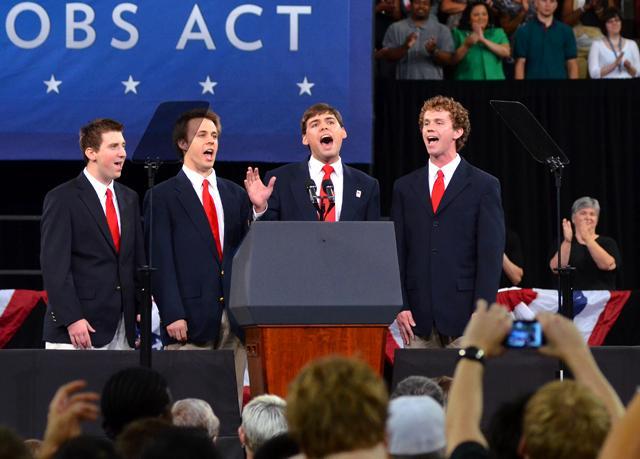One month ago, many did not know who Joseph Kony was. Born in northern Uganda, Kony would grow up to be the head of the Lord’s Resistance Army, a Ugandan guerrilla group Since 1986, Kony’s guerrilla army has captured roughly 66,000 children and sold them into slavery or military combat.
Human trafficking is the illegal trade of human beings for the purposes of reproductive slavery, commercial sexual exploitation, forced labor or another modern-day form of slavery. In the case of Joseph Kony and the LRA .
The premiere of the “Kony 2012: Make Kony Famous” campaign from Invisible Children, Inc., the organization acting as the face of the anti-human trafficking movement, brought a wave of support for the exploited Ugandan people. The movement began in 2003 when three student filmmakers traveled to central Africa in search of a story. Upon arrival, they quickly found what they were looking for when they stumbled upon Africa’s longest-running conflict-a battle in which children were used as both weapons and victims. In 2005, they produced Invisible Children: Rough Cut, a documentary chronicling their time in Africa. Through this film, millions of people were able to witness the horrors of human trafficking.
In response to the actions of warlords such as Kony , organizations around the world are stepping into the light to take a stand. In addition to Invisible Children, the Polaris Project, Not For Sale and Free the Slaves have stepped up to tackle this widespread tragedy.
Recent speculation has shown that some organizations aren’t as sincere as they appeared. Financial inquiries show that monetary donations aren’t being used in a way that benefits the cause. Ian Peterson, a junior in public relations, still has faith in groups like Invisible Children.
“The only way to really get the Ugandan people out of turmoil is to get education out to them,” Peterson said. “Invisible Children’s ‘Schools For Schools’ campaign is doing just that.”
Peterson believes in Invisible Children because the cause is something he has experienced firsthand. He visited Uganda for a mission trip in 2006 and built schools, taught classes and interacted with the people.
“I just fell in love with them,” Peterson said. “They told me stories about their past and it broke my heart. I had to help.”
Now the president of the Grains of Time, N.C . State’s only male a cappella group, Peterson utilized his talents by designing and executing a benefit concert for Invisible Children. With the help of the other four a cappella groups, the Grains were able to raise over $1000.
“Singing is really my bread and butter,” Peterson said. “Everything just started to fall into place when we teamed up with CSLEPS and a few proactive friends.”
Jeffrey Lee, freshman in First Year College, feels that students should be careful when donating to any organization.
“You really can’t be too cautious,” Lee said. “Groups will target college students and use children or animals to lure us in.”
As an alternative, Lee suggests putting in time instead of money.
“Volunteer your time, not your credit card,” Lee said. “There are plenty of organizations that will allow you to travel to the places instead.”
Human trafficking is an ancient problem that has plagued nations of all types for centuries. While Peterson and Lee differ in voluntary opinion, both agree students should help in some way.
“We’re young and influential,” Lee said. “Believe it or not, people are going to listen to us. We need to harvest that power and use it to our advantage and in turn help those around us.”








